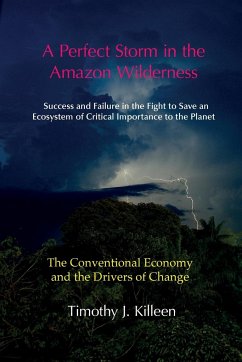Global society is once again focusing its attention on the Amazon, but the outlook is bleak. Top-down approaches that depend on macroeconomic policies are not changing the behaviour of the inhabitants of the forest frontier. Efforts to improve law enforcement have failed because frontier societies are profoundly unequal; inequality encourages informality, breeding corruption and illegality. Indigenous people have stepped into the breach and are doing what they can to stave off disaster, but they are vastly outnumbered. Most inhabitants - who are also citizens that vote - pursue conventional production models that are fundamentally non-sustainable. They might choose different pathways, given the opportunity, but these are limited by the frontier economy and the social reality of their communities. We are losing the Amazon. Volume One of Tim Killeen's serial monograph delivers an unvarnished description of the obstacles to conserving the world's largest and most important tropical forest. Chapter One starts with a lucid narrative of the complex and interrelated social and economic forces driving deforestation, with a critical review of policy initiatives designed to change that trajectory towards a more sustainable future. Chapters Two (Infrastructure), Three (Agriculture) and Four (Land) lay bare the history, economics and business models that underpin the conventional economy. Two further volumes will address other key aspects of a sustainable future, including: the extractive sector (Ch. 5); the culture wars that divide the populace (Ch. 6); evolving governance systems (Ch. 7); the potential of the forest economy (Ch. 8); advances in biodiversity science (Ch. 9); the looming impact of climate change (Ch.10); the indigenous awakening (Ch.11); conservation policy (Ch.12); and, finally, the future (Ch.13). Killeen's enormously ambitious effort seeks to understand and explain all the complex and interrelated phenomena driving (and impeding) change across the region. If you are concerned about the fate of the Amazon, you must read this book.








